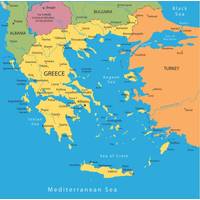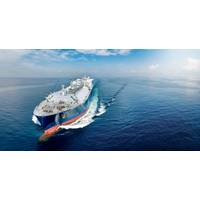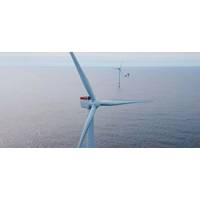Opinion (John Kemp): Trump Can't Require Pipelines to use U.S. Steel
President Donald Trump on Tuesday invited the promoter of the Keystone XL pipeline to re-submit its application for a permit and promised an expeditious review.
But Trump's memorandum on Keystone was twinned with another ordering the secretary of commerce to develop a plan to ensure all pipelines built, repaired or upgraded in the United States use domestically made steel.
The secretary was ordered to submit a plan within 180 days "under which all new pipelines, as well as retrofitted, repaired, or expanded pipelines, inside the borders of the United States ... use materials and equipment produced in the United States."
The plan must require the use of U.S. components "to the maximum extent possible and to the extent permitted by law" in a language inserted to help it survive a legal challenge.
Although the requirements apply to all materials, raw iron and steel and equipment made from them were highlighted ("Presidential memorandum regarding construction of American pipelines", White House, Jan. 24).
The pairing of the promise for an expeditious review of Keystone XL with a plan to require the use of U.S. steel is characteristic of the president's transactional and deal-making approach. The pairing is a classic Trump quid pro quo.
But it also highlights what is likely to become one of the central tensions for the Trump administration because a requirement to use domestic steel would almost certainly violate 70 years of settled international trade law.
The president's desire for maximum discretion to strike advantageous deals on a case-by-case basis conflicts with the need of businesses for a stable rules-based system to plan their investment and operations.
NON-DISCRIMINATION
Countries around the world traded more than $20 trillion in goods and services in 2015, and almost all that moves under the rules of the World Trade Organization ("World Trade Statistical Review", WTO, 2016).
The WTO, and its forerunner the General Agreement on Tariffs and Trade, is one of the pillars of post-war prosperity and a major reason the global economy has never suffered another collapse like the 1930s.
GATT/WTO trade rules are fairly straightforward, although they have been codified in dozens of separate agreements and there is an extensive case law arising from disputes.
At the heart of the GATT/WTO system is the principle of non-discrimination between domestic producers and foreign suppliers, and among foreign suppliers based in different countries.
GATT/WTO members are required to give the same treatment to imports from all other members, so any privilege given to an importer from one country must be given to importers from all other WTO members.
The principle of most-favoured-nation treatment is required by Article I of the General Agreement on Tariffs and Trade signed in 1947.
GATT/WTO members must also treat imported goods and services no less favourably than domestically produced items once they have cleared customs.
The national treatment obligation is enshrined in Article III of GATT 1947 especially its fourth paragraph ("General Agreement on Tariffs and Trade", WTO, 1947 and 1994).
NATIONAL TREATMENT
Trump's plan to require U.S. pipelines to be built with U.S. steel is clearly inconsistent with the national treatment obligation set out in Article III:4.
"The products of the territory of any contracting party imported into the territory of any other contracting party shall be accorded treatment no less favourable than that accorded to like products of national origin in respect of all laws, regulations and requirements affecting their internal sale, offering for sale, purchase, transportation, distribution or use."
The plan to require the use of U.S. steel in U.S. pipelines is a textbook case of a local content requirement the GATT/WTO has long held is inconsistent with Article III:4.
The classic ruling on local content requirements was (ironically) made in a case brought by the United States against Canada in 1982 and finalised in 1984.
The United States successfully challenged the administration of Canada's Foreign Investment Review Act, which made investment approvals conditional on undertakings, including the purchase of certain products from domestic sources ("Canada - administration of the Foreign Investment Review Act", GATT, 1984).
The GATT case brought against Canada has direct parallels to the Trump administration's plan to require pipeline constructors to use U.S.-made steel.
The United States has always been a fierce opponent of local content requirements because they discriminate against U.S. exporters and investors.
U.S. trade officials have repeatedly fought local content requirements under the GATT/WTO and in most cases the United States has prevailed.
The United States has challenged content requirements applied by India (solar cells), Argentina (import licenses), China (tax refunds, auto parts), Turkey (rice), Canada (wheat, auto parts) and the Philippines (auto parts) among others.
In fact, the United States has brought more challenges to local content requirements than any other member of the WTO.
The blunt reality for the Trump administration is that there is no way to make pipeline approvals conditional on the use of U.S. steel without undermining the U.S. goal of fair market access for U.S. exporters.
RULES-BASED ORDER
The United States is a major beneficiary of the rules-based system of international trade under the GATT/WTO and has a strong interest in upholding them.
The United States has been the most frequent user of the WTO's dispute settlement system to obtain improved market access for its exporters.
U.S. officials have brought more complaints at the WTO (114) than major rivals such as the European Union (97), Japan (23) and China (15).
The United States, as the world's dominant economic and military power, has always had a complicated and inconsistent approach to the concept and practice of international law.
For a superpower, unlike a less powerful country, there is an inevitable tension between "might" and "right".
By and large, however, the United States has sought to uphold the notion of a rules-based international system and hold other countries to the same standard.
The United States was the principal architect of the rules-based international order which emerged after 1945 and has been its main defender against destabilising challenges from new powers such as China.
The concept of international law lies at the heart of U.S. complaints about China's occupation and development of rocks, shoals and reefs in the South China Sea.
And the U.S. Navy's freedom of navigation operations in the South China Sea are intended to enforce rights under international law.
WHITE HOUSE POLITICS
The best way to understand the public memorandum-signing ceremonies on Jan. 24 is as a piece of political theatre designed to show the new president fulfilling his pledge to put America first.
Trump's secretary of commerce will struggle to craft a local content requirement for U.S. pipelines that is "permitted by law" but the administration has pushed that awkward decision six months into the future.
A careful reading of the memoranda the president signed on Tuesday shows they don't commit the administration to much at all.
Most of the memoranda contain legal language about ordering things to the maximum extent permitted by law which is designed to preserve lots of wiggle-room.
The administration has created a potential problem for itself but that can probably be attributed to inexperience and the fact the majority of positions are still unfilled.
Nonetheless, it signals there will be a chronic tension between the president's preference for ad hoc deal-making and the legal obligations of the United States both at home and internationally.
The conflict between discretion and the need to observe due process as well as constitutional, statutory and treaty limits on the exercise of presidential power is shaping up to be one of the dominant themes of the Trump presidency.
By John Kemp


